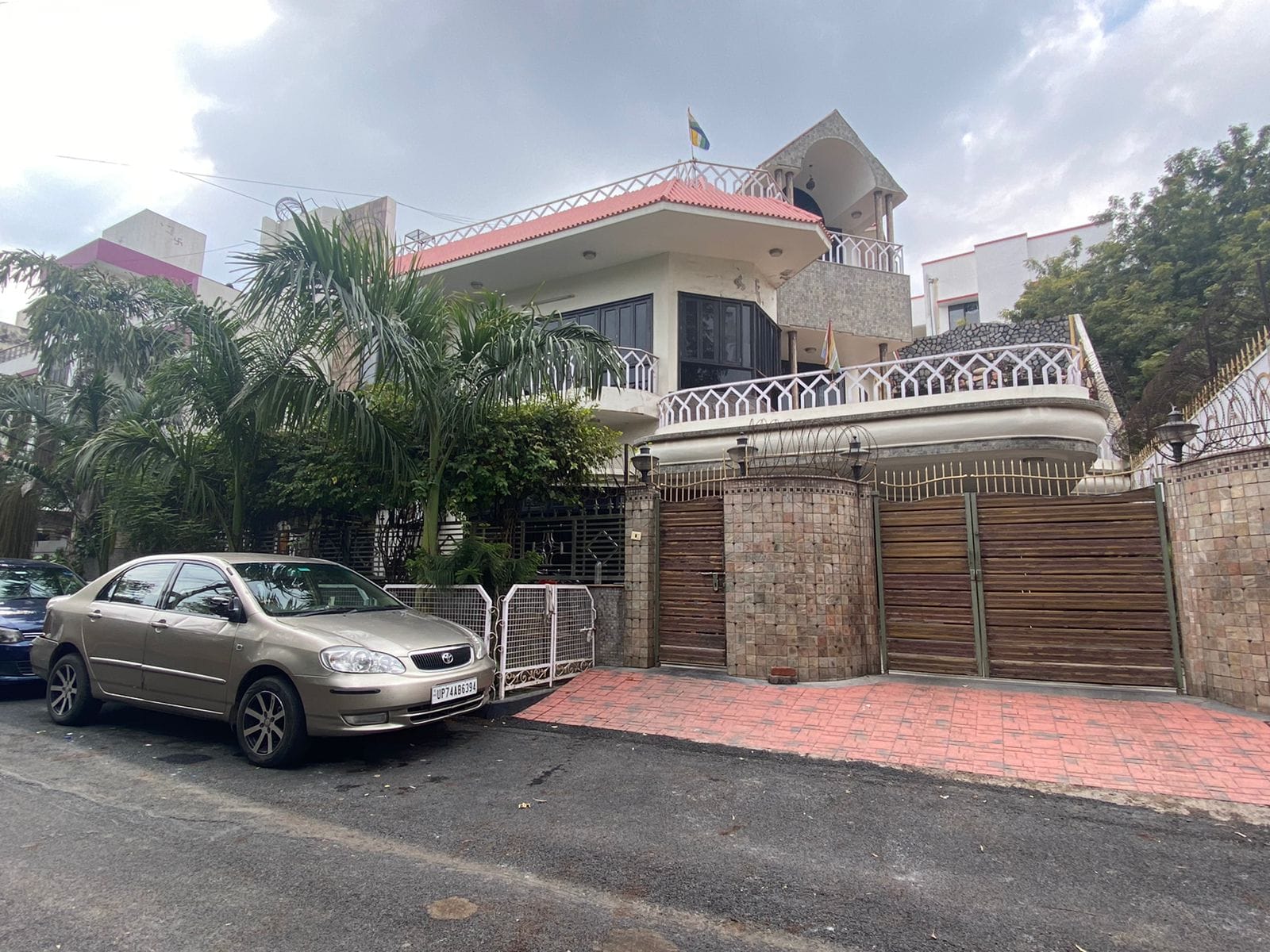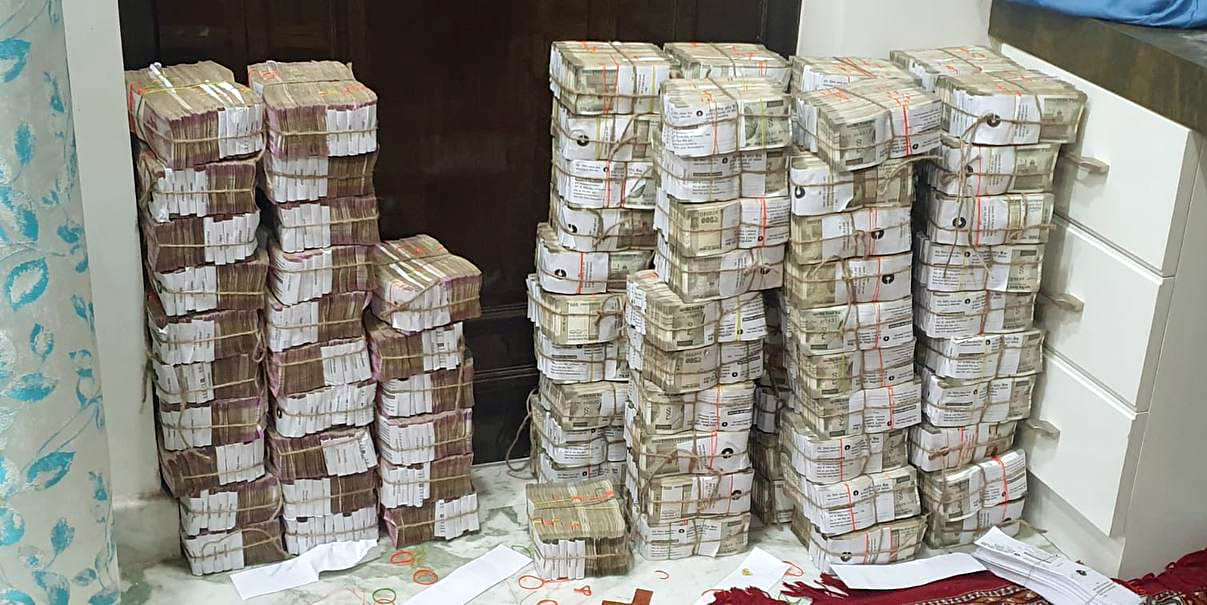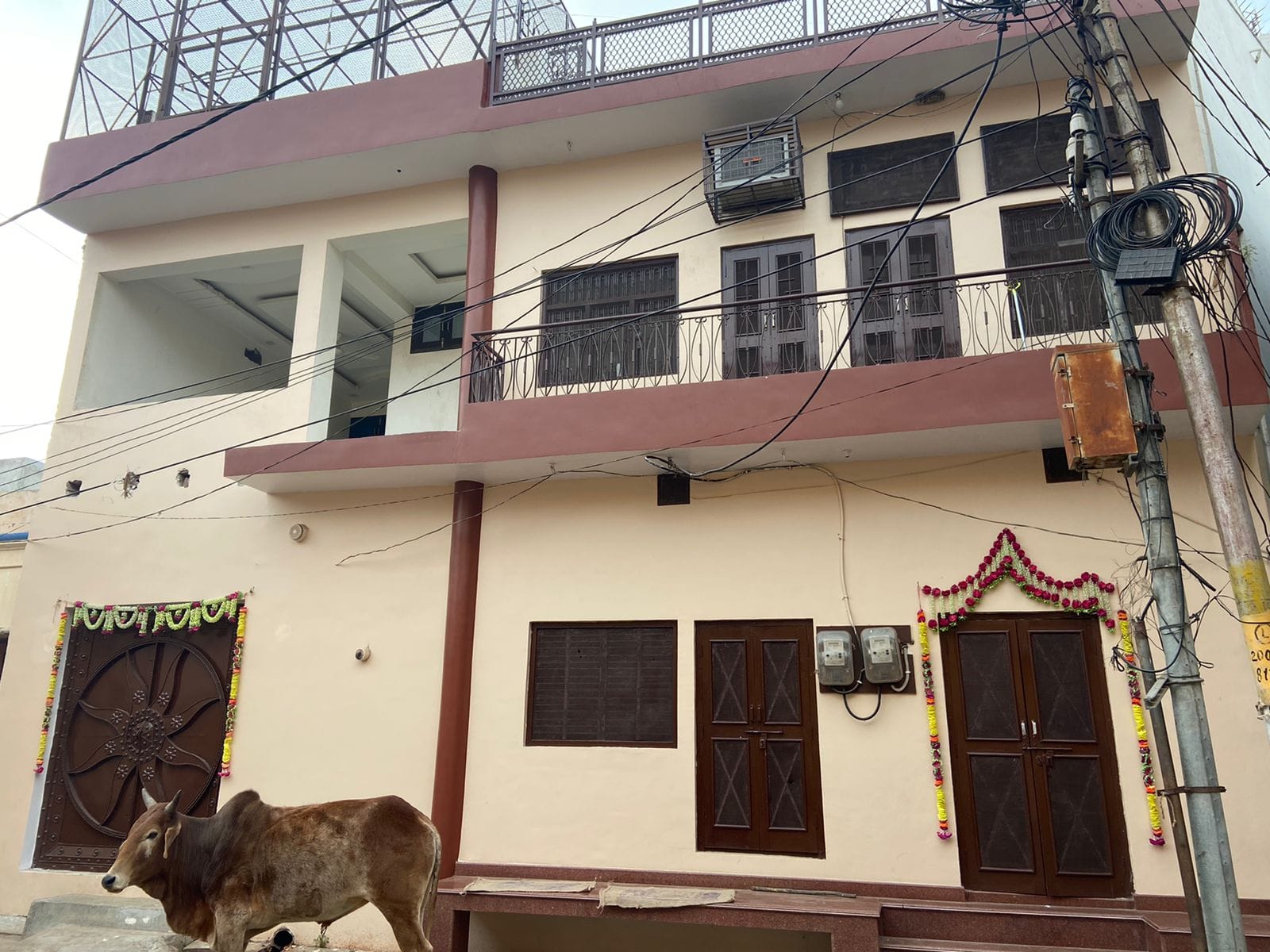Kanpur/Kannauj/Lucknow: A tapering bylane — not even broad enough for the passage of a car — leads to the single storey home of perfume businessman Peeyush Jain’s Kannauj residence. His neighbours are still startled over news of the 24 kg of gold recovered from this house and the over Rs 177 crore in cash recovered from his Kanpur residence in raids by the GST intelligence unit on 26 December.
Neighbours of Jain describe him as a “simple man”, as well as “pensive” and “down to earth”. For businessmen in the pan masala industry and the perfumery sector, however, it is no surprise that Jain could be sitting on so much cash.
Jain, they said, has an “excellent odour memory”, is a “man of his word”, one with a “secret recipe” and with “well-stocked cash”. Both neighbours and business associates said that he was just like any other businessman in this industry who remains “low key”.
Huge amount of cash was found stacked in seven cupboards — four in the bedroom and three in the basement — during the search at Jain’s Kanpur residence.
However, there is a mystery attached to Jain’s business practices. While neighbours or people from the pan masala or perfume industry have something to say about him, no one is certain of who his clients were, or if he had any political connections.
Talking about him in past tense, a close associate who did not want to be quoted said that Jain had been in the business of making perfumes for years and had a “secret compound” which he supplied to pan masala companies — something that set him apart and fetched him money.
He said that Jain did not trust many people and used to do much of the cash-related work himself.
“He maintained his own diaries, kept his own cash records and trusted no one with it, which is why this recovery astonished everyone,” a businessman who claimed to know Jain said. “Since he was good at making the compound, which is used in pan masala production, he had a monopoly. He used to get a bottle of a mixture, which he used for making the compound. No one knows what all was there in that,” he said.
Also read: Around Rs 180 cr of illegal cash, 23 kg of gold seized from UP businessman Peeyush Jain
‘Kept money of political parties’
According to the businessman, Jain also has a reputation of someone who could arrange “a sum of Rs 5 crore within a day, if it was required for a hawala transaction”.
“Everyone knows that he has ready cash. Also, it is not just him. The business of pan masala or perfumes runs on cash. Whether it is procurement of raw material, making cash payments, cash plays a major role. Everyone in the market knew that Peeyush would have cash,” the businessman said.
He also said that he may have “kept money which belonged to political parties” and may have “collected it at one place because it was needed”. He refused to divulge further details and said that no one knows if Jain had any political connections as he was never seen with any political leader or at any political event.
ThePrint accessed the details of firms associated with Peeyush Jain and found that the turnover of companies declared by him on records was much less than what was recovered from his home in cash.
According to records of Odochem Industries, in which Peeyush Jain, his father Mahesh Chand Jain and his brother Ambreesh Jain are partners, a turnover of only Rs 4,24,33,300 has been shown for the year 2021-22. Out of this, an input tax credit utilisation — tax paid on purchase of material to the manufacturer — is shown as Rs 1,16,33,252 and the liability declared is Rs 83,06,282.
A turnover of Rs 6,05,88,700 has been shown for the year 2020-21 and a turnover of Rs 5,25,93,400 has been shown for 2019-20 respectively in the books.
“The records are proof that the businessman has undervalued his turnover, hiding the actual figures, just to save tax,” a source from the tax authorities told ThePrint.
Jain has been booked under the GST Act and is held under a 14-day judicial custody. He has allegedly evaded GST of over Rs 31.5 crore in the last four years.
‘Excellent odour memory’
Piyush Jain and his brother Ambreesh both have a Masters degree in chemistry from a university in Kannauj, his son-in-law, Neeraj Jain, told ThePrint.
Although Jain’s father, Mahesh Chandra, too, was in the perfume business, being well-versed in chemistry, Peeyush started making compounds for soaps and detergents. Soon, he took over the family business after he mastered the art of making compounds — which is required for pan masala. He has an “excellent odour memory”, a businessman known to him said.
Jain’s famed compound for the pan masala industry is a mix of chemicals and natural extracts. A good compound decides the quality of the pan masala, people associated with the trade told ThePrint.
According to one such businessman, Kannauj is a hub of perfumes and pan masala. Perfumeries make the compound and sell it to pan masala manufacturers. Pan masala, the businessman explained, has gutka, supari, tobacco, chuna and perfume as ingredients.
According to the businessman, a good compound maker should be able to differentiate between 700-800 fragrances and tastes, and just by smelling a compound should know what all chemicals and essence has been put in it. Jain, he said, had mastered that craft. After tasting a product, Jain could tell what all has been used in it, the businessman added.
“An expert in compound making has to have an excellent odour memory and taste memory. That is what Jain has. Moreover, apart from his own knowledge, he has parental training in the business,” the businessman said.
Sameer Pathak, proprietor, Munna Lal and Sons Perfumers and president of the Attar and Perfumes Association in Kannauj, said, “All we know is that he made excellent compounds and that is why he was popular. There are 50-60 products that are used in making a compound and perfume is just one of them. After combining the ingredients, it is blended and he did it very well. Jain is a very educated man, he is very knowledgeable about this business and has a good reputation. I do not know more about him.”
‘Kept a very low profile’
According to Jain’s son-in-law, he has three children — a daughter, Nilansha, who is married and is a pilot and two sons, Pratyush and Priyansh. While Pratyush is studying in IIT Kanpur, Priyansh too is an engineering student.
When ThePrint visited his residence in Kanpur’s Anandpuri — a rather sprawling bungalow — where Rs 177 crore was recovered, it found that not many people in the colony, where a significant number of families from the Jain community reside, knew Peeyush personally. Outside the house was parked a Toyota Corolla with a dented body.

Santosh Jain, manager of the Jain temple in the neighbourhood, who knows most residents from the community, said, “He never came or donated anything, nor was ever part of any activities of the Jain samaj. His brother Ambreesh comes often and his sons take part in activities. I saw him only on TV, people hardly know him here.”
Manoj Rathor, BJP corporator of the Transport Nagar locality in Kanpur, said that Peeyush “never got involved in any activity of the area”.
“I have never seen him get involved. He kept to himself. In fact, one of his staff told me that once he had asked him for some money, but Jain refused, saying, ‘paise haram ka hai kya? (You think money comes easy?)’. His driver told me that he even did not let him switch on the AC in the car,” Rathore informed.
Mahesh Trivedi, the area’s MLA, also from the BJP, concurred with the others and said that Jain was never “involved in Jain samaj activities”.
“I never saw him or spoke to him. He was never involved in any activities in the area. We just know that he stayed in this house and was a businessman,” he said.
Jain’s son-in-law Neeraj, however, said that this was not true. “He is a very helpful person and you can go verify it from his neighbours in Kannauj. Yes, he is socially inactive and does not meet many people. He is a family oriented man. He is very intelligent and knowledgeable about his business and that is why he is thriving,” he said.
Sudhir Malviya, Jain’s lawyer, said that he had never heard of him before this case. “I had never heard of him. When he was arrested, I was engaged to just present his case. I will be able to share more details in the future on the case.”
In Kannauj, however, Jain’s neighbours speak of him in admiring terms. Although shocked about the amount of wealth that was recovered from Jain’s house, the neighbours said that they always knew of him “being a wealthy man, who could afford servants”.
“We always knew that the family is wealthy because they were the only ones here who had servants, they had tempos coming every now and then for loading and unloading things, which was indicative of a good running business, but we could never imagine that so much cash would come out of his house,” a neighbour who runs a local parlour told ThePrint. “His wife would come to my parlour often, they never asked for any staff to be sent to their house. They did not have such airs about them,” he added.
The neighbour said that the women of the Jain household never wore expensive jewellery or clothes, nor did they have things that looked valuable in their home — nothing, in fact, that would suggest so much cash stashed in.
“They had a very ordinary looking house, nothing extravagant. But yes, they are well off, and everyone knows it here. They may have an old LML Vespa scooter and an old Santro, but everyone knows that they own two houses in Kanpur and other cars,” the neighbour said.

Another neighbour, also a Jain and who claimed to be a distant relative, said that Jain’s image that was being portrayed now — as someone who would walk around in simple clothes and rubber slippers — is not true.
“He (Jain) dresses up well. Not very flashy, but well. Not that he goes to weddings on his scooter, wearing bathroom rubber chappals (as has been reported in the media). Why would he do that when he is so well off? He did not show off, but always dressed well,” the neighbour said. “He always helped everyone. It is difficult to believe that he hoarded so much cash, evading rules,” he added.
‘Pan masala firms pay symbolic tax, evade taxes’
According to the investigation so far, the total evaded value of GST by Peeyush Jain is over Rs 32 crore in the last four years.
According to sources in the GST department, an evasion of this scale is not “unheard of”.
Pan masala companies, a source said, pay only “symbolic tax” and none of the businessmen shows the correct record of either procurement of raw materials or sales of their products in the books. Only 10 per cent of the actual amount is reflected.
Moreover, the tax on these products is also dependent upon the number of machines that are used to manufacture them. So, they would show two machines, but would actually use six of them, sources said.
From the money that they accumulate by evading taxes, the businessmen invest it in the construction business, sources said. Many of them even invest in agricultural land and purchase shares through shell companies, after which the money is laundered.
According to a source in the GST department, there is “unaccounted supply of raw material to pan masala companies.”
According to the source, a very high tax is levied on pan masalas, including a cess, because it is hazardous to health. This is the reason why tax evasion here is much higher than in other products.
“Besides taxes, there is the cess on pan masala. So, if we calculate, on pan masala a GST of 28 per cent is levied along with 60 per cent of cess, which becomes 88 per cent. Then, since tobacco is also sold with pan masala, a separate GST of 28 per cent is put on that, along with a cess of 160 per cent, which comes to 188 per cent. So on the total product a tax of 88 per cent, plus 188 per cent, is levied. Which is why we see the most tax evasion in this sector,” the source said.
“Moreover, most people in this industry run on cash. The amount of money they make just by evading taxes on raw material and on finished goods is huge,” he added.
“This industry sees the highest tax evasion because the taxes levied are humongous. Higher the tax, higher the evasion,” the source further said.
How tax evasion is done
For any goods valued over Rs 50,000, an e-way bill is required to move it from one state to another. This bill is a unique number assigned to a consignment for smooth movement of goods and is generated before transporting goods, along with a tax invoice. The bill declares what all goods and worth how much are moving from point A to B. This is what businessmen and transporters exploit to allegedly evade tax, the source explained.
“An e-way bill is like a road permit. When a truck is carrying some goods from point A to B, along with the tax invoice for those goods it is essential to have the e-way bill. The e-way bill is just a system to show that goods are in movement. It is a way of declaring the goods as it has all their details and their worth,” the source explained.
“What defaulters do is that they do not generate this e-way bill. The transporter, in connivance with the seller, doesn’t generate this bill, so that they do not have to declare what all goods are being moved. Unless it gets caught, the goods go and they are successfully able to evade tax,” the source pointed out.
“In many cases, the transporter shows that the truck is carrying several consignments (instead of one), and each is less than Rs 50,000. Like in this case, consignments were shown in names of shell companies, while it all belonged to one company,” the source said.
The source said that the GST department gets regular inputs and apprehends such trucks on a regular basis, but in most cases no arrests are made as the defaulters agree to pay the tax along with the penalty.
“It is a close-knit community. They do not let out the secrets of their trade. We get to know this when we catch an evasion red-handed. At that time too, they just tell us that they would pay the tax, whatever the amount is, and that we should release their stock. They would never talk about their rivals,” the source said.
Also read: Kumar Mangat Pathak to make ‘Raid 2’ on perfume trader Piyush Jain
What happened in Jain’s case
According to sources in the GST intelligence, locations including the factory of Trimurti Fragrance, owned by Pradeep Kumar Aggarwal, the residences of Ambreesh Jain and Peeyush Jain and the office and residence of Praveen Jain, director of Ganpati carriers, which was carrying the goods for Trimurti without e-way bills, were searched.
Searches at Trimurti revealed that four vehicles loaded with pan masala and tobacco were not carrying an invoice or e-way bills, following which all four vehicles were placed under seizure according to Section 129 (dealing with the detention, seizure and release of goods in transit) of the CGST Act.
According to sources, manufacturers of Trimurti Fragrance accepted the evasion of GST by way of clearance and paid full GST along with penalty and interest at applicable rates.
Following this, a search was conducted from 22 December to 25 December at the residence of Peeyush Jain, which led to the recovery of approximately Rs 178 crore.
Searches were also conducted at Trimurti and Ganpati carriers, which led to the recovery of incriminating documents, indicating evasion of GST by way of clearances of taxable goods, including pan masala and tobacco, under the cover of fake invoices.
“Peeyush Jain also admitted to the evasion by way of illicit supplies of finished products, namely perfumery compounds to firms. He has admitted that the cash recovered and seized from his residence is attributable to illicit supplies of taxable goods affected from his aforesaid firms controlled and operated by him and his brother Ambreesh,” an investigating officer told the Kanpur court, while seeking judicial custody for Peeyush.

Investigation also revealed that three companies owned by Peeyush Jain are engaged in the manufacture and supply of taxable goods — the perfumery compound. The combined taxable value of manufactured goods produced by all the three firms is around Rs 20-22 crore in 2020-21, according to financial records, out of which 85 per cent is supplied to one firm — Trimurti. About 10 per cent of the total turnover is sold to walk-in customers.
“Peeyush Jain admitted that the three firms have collectively effected illicit supply of taxable goods that is, perfumery compound, having taxable value of Rs 177,45,01,240 without issuing any invoice and without payment of GST leviable thereon. The above supply was neither recorded in their regular books of accounts nor declared in their GST returns,” a GST official said.
The act of supplying taxable goods without issuing tax invoice is an offense under the CGST Act. Not maintaining accounts and records, not furnishing details of outward and inward supplies, and the failure of payment of GST, is an absolute contravention of the provisions of the Act, the official said.
The investigators also told the court that Peeyush has been evasive in his submission.
“Despite having supplied more than Rs 177.75 crore to various buyers for a period of three to four years, Jain feigned ignorance regarding the identity of the buyers of such goods supplied clandestinely by him. He also claimed that he could not remember the name of suppliers of raw materials from which his firms manufactured the perfumery compound. Total transaction of his three firms taken on books of account for the year 2021 is only about Rs 21 crore,” the investigating officer told the court.
According to the officer, Peeyush’s three firms had supplied goods of Rs 177.45 crore in four years, meaning they have collectively supplied goods of Rs 45 crore every year without issuing invoices and evading GST during the period. Further investigation in the case is on.
(Edited by Saikat Niyogi)
Also read: It’s not BJP money: FM on Rs 200 cr seized from perfume maker in Kannauj






